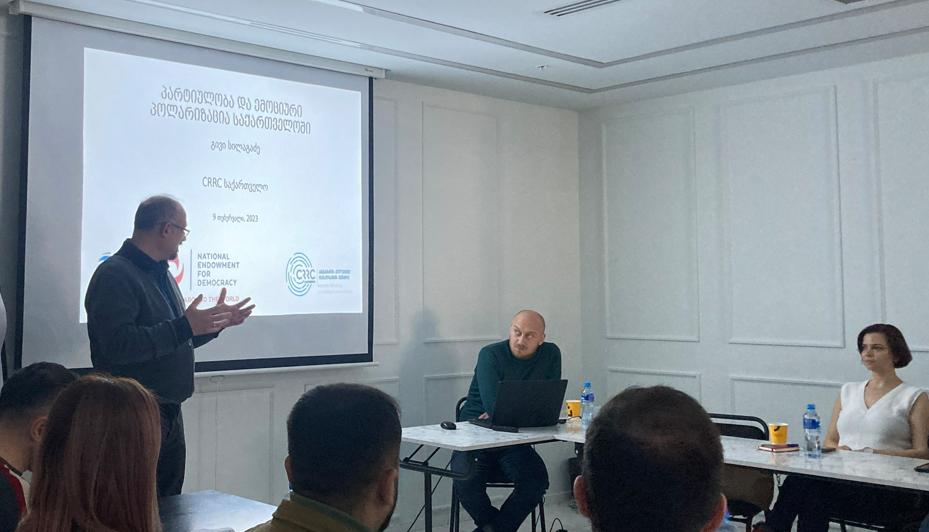Caucasus Research Resource Center (CRRC-Georgia) presented a research report examining partisanship in Georgia and the level of affective polarization in the society on 9 February, 2023.
“Political polarization is commonly singled out as an obstacle to Georgia’s democratic development. That was our main reason to research the quality of polarization and partisanship in the electorate,”- Koba Turmanidze, Director of CRRC-Georgia said at the press conference.
The research employed the concept of affective polarization which relies on attitudinal and emotional differences among voters rather than policy or ideological differences. The study showed that a majority of Georgians are not politically polarized; every three out of ten Georgians can be categorized as somewhat affectively polarized. At the same time, supporters of the ruling Georgian Dream party are more polarized than opposition supporters.
The author of the report, Givi Silagadze overviewed the key findings, noting that polarized people tend to be older, ethnically Georgian, religious, and partisans. However, according to him, polarization “does not seem to have hugely affected social relationships”. Georgians overwhelmingly report that having contrasting party sympathies from their friends would not make them feel uncomfortable.
The survey was conducted by CRRC-Georgia in August and September 2022 with the computer-assisted telephone interviewing (CATI) method. Overall, 1,523 adults (18+) people were interviewed throughout Georgia. The study was funded by The National Endowment for Democracy (NED).










